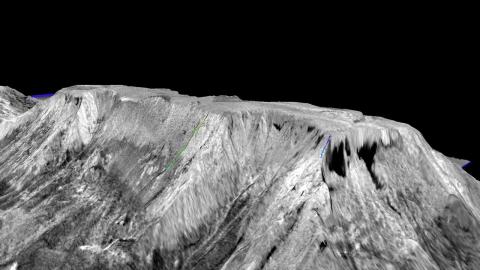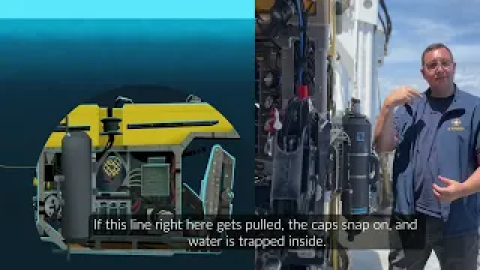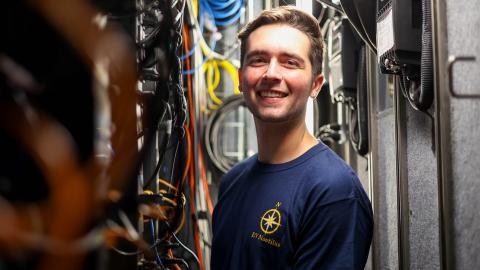Celebrating our Partnership with OECI
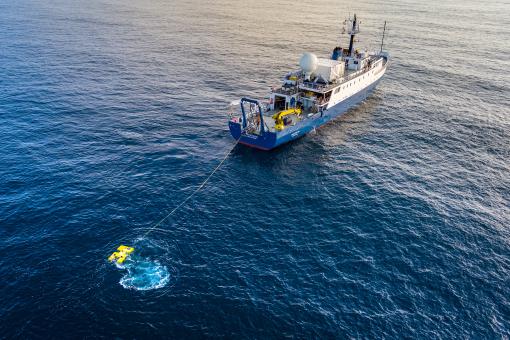
Ocean Exploration Trust is proud to be a part of NOAA Ocean Exploration’s Ocean Exploration Cooperative Institute (OECI). Our collaboration with OECI has allowed us revolutionary opportunities to explore the deep ocean and bring that exploration to people around the world. The OECI mission is to explore, map, and characterize the nation’s vast ocean territory, to develop and implement new technologies, and to engage future generations of ocean scientists, engineers, and stakeholders.
“OET is proud to be part of the OECI, a consortium that brings together the expertise of five leading oceanographic institutions in support of NOAA Ocean Exploration's mission,” says Daniel Wagner, OET Chief Scientist. “To date, E/V Nautilus has supported a total of 22 OECI expeditions that have not only mapped and characterized previously unsurveyed areas but also integrated numerous emerging technologies into at-sea operations.”
Together with the University of Rhode Island, the University of New Hampshire, Woods Hole Oceanographic Institution, and the University of Southern Mississippi, OECI works to accelerate exploration through the development of new ocean technologies and operational concepts, field testing and refinement of new technologies, and the application of new and existing systems and approaches to explore the vast, underexplored regions of the ocean.
NOAA Ocean Exploration coordinates, funds, and conducts expeditions around the globe that feed the essential research and scientific inquiry necessary to understand the features and phenomena of the ocean to support informed resource management decisions. During our NA152 expedition from British Columbia to the Central Pacific, NOAA Ocean Exploration affiliate Rachel Maile Gulbraa joins the Corps of Exploration to strengthen this collaboration.
“While it's easy to see the big picture view of where and how our organizations collaborate, the opportunity to sail aboard E/V Nautilus presents the chance to gain a better understanding of the details of where our operations differ, in what ways they are complementary, and how we can continue to learn from each operation,” says Rachel Maile Gulbraa, NOAA Ocean Exploration Affiliate.
The OECI affiliate institutions, along with NOAA Ocean Exploration, bring engineering, scientific, communication, and management expertise to bear, creating a powerful collaboration aimed at ocean exploration. Activities of the OECI, whether communicating with students or building robotic tools, are executed collaboratively to ensure that new developments and new exploration maximize the collective experience and competencies of this partnership and work towards the OECI’s three thematic areas;
- Ocean exploration technology
- Exploration planning and execution
- Increase the utility of ocean exploration information
Ocean Exploration Trust was established as a 501(c)(3) nonprofit in 2007 to support the newly launched Ocean Exploration Program in the United States, which was outlined and guided by the President’s Panel for Ocean Exploration in 2000. OET’s program is national and international, with funding support from federal agencies as well as the private and public sectors. Since the NOAA Ocean Exploration program was authorized into US law by Congress in 2009, OET has been partnering closely with the NOAA Ocean Exploration as well as other government agencies, academic institutions, and the private sector to advance the field of deep-sea exploration and to engage the public and next generation.
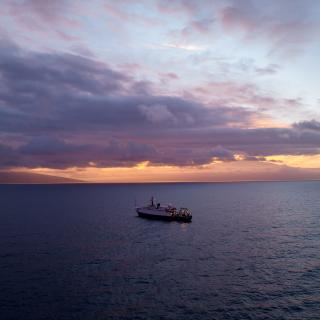
Mid-Pacific Mapping Southbound
This expedition is a seafloor mapping transit to bring the E/V Nautilus from British Columbia back to the Central Pacific where the ship will operate for the remainder of the 2023 field season. This 12-day transit route will fill gaps in seabed mapping within and beyond the U.S. EEZ and thereby support priorities of Seabed 2030 and the US National Strategy for Mapping, Exploration, and Characterization.
